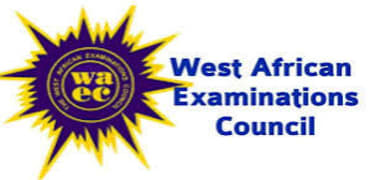Manufacturing Leads the Charge as Nigeria’s VAT Collection Surges to N1.78 Trillion in Q3 2024
Manufacturing Leads the Charge as Nigeria’s VAT Collection Surges to N1.78 Trillion in Q3 2024
By Achimi Muktar
In a groundbreaking revelation, Nigeria's Value-Added Tax (VAT) collection has reached a record N1.78 trillion in the third quarter (Q3) of 2024, cementing its position as a vital revenue stream for the nation. The latest data from the National Bureau of Statistics (NBS) shows an impressive 88% year-on-year (YoY) increase from the N948.07 billion recorded in Q3 2023.
The Numbers Behind the Growth
The NBS report highlights a 14.16% quarter-on-quarter (QoQ) growth compared to the N1.56 trillion collected in Q2 2024. The revenue boost was driven by:
Local VAT payments: N922.87 billion.
Foreign VAT payments: N448.85 billion.
Import VAT contributions: N410.62 billion.
VAT, a consumption tax managed by the Federal Inland Revenue Service (FIRS), is distributed to the three tiers of government through the Federation Accounts Allocation Committee (FAAC), playing a crucial role in funding public services and infrastructure.
Sectors Leading the VAT Revolution
The manufacturing sector emerged as the largest contributor to VAT revenue, accounting for 22.21% of the total, reflecting its pivotal role in Nigeria's economic framework. The information and communication sector followed closely with 20.89%, while mining and quarrying activities rounded out the top three with 18.90%.
On the other hand, sectors with minimal contributions included:
Household activities (0.01%).
Extraterritorial organizations and bodies (0.01%).
Water supply, sewerage, and waste management (0.03%).
High Performers and Declining Sectors
The data also revealed fascinating growth trends across sectors.
Human health and social work activities recorded the highest growth rate at 250.39%, driven by increased investment and demand in the sector.
Household activities grew by 102.09%, reflecting improved formalization of domestic service contributions.
Conversely, some sectors experienced notable declines:
Water supply, sewerage, waste management, and remediation activities contracted by -41.92%.
Extraterritorial organizations and bodies declined by -36.14%.
What’s Driving the Surge?
Experts attribute the VAT surge to improved compliance, digital transformation in tax collection by the FIRS, and robust economic activity across key sectors. Manufacturing, in particular, has benefited from policy support aimed at bolstering local production and reducing import dependence.
The rise in foreign VAT payments also reflects Nigeria’s growing integration with global trade, as businesses increasingly rely on imported goods and services.
What’s Next for VAT in Nigeria?
With the government exploring measures to enhance revenue, including tax reforms and the expansion of VAT coverage, the upward trajectory in collections is expected to continue. However, addressing challenges in declining sectors remains critical to achieving balanced economic growth.
As Nigeria rides this wave of VAT success, the spotlight on manufacturing, technology, and resource extraction underscores the nation’s evolving economic priorities. Whether this trend sustains in the coming quarters will depend on policy stability, global market dynamics, and continued efforts to expand the tax net.


















